New Delhi: At 8 am on a July morning, the door to UPSC aspirant Arushi Tiwari’s newly rented flat in Delhi’s Sarita Vihar shook under furious knocks. Before she or her two flatmates could fully wake, a chorus of accusations poured in from neighbours. This time, it was garbage accumulated near the building for a few days; another time it was the type of clothes the women hung to dry in their balconies.
“Ladkiyon ko ghar dena hi nahi chahiye (we should not rent to women at all)”, “it’s easier to rent to boys” – these remarks are common from the neighbours in the residential society in the capital’s south.
This is a pattern repeated across Delhi’s posh RWA societies. Being a single woman in Delhi isn’t easy. They have to live by unwritten rules. They have many questions to answer. The ubiquitous, all-powerful Resident Welfare Associations view them with suspicion and as a moral liability that needs to be policed. Neighbours stare, taunt and restrict them. Property dealers vet them even before they show them vacant flats.
In these societies, a woman’s freedom – whether she owns a house or rents one – often comes with conditions enforced informally by those living next door. A single woman’s issues are usually considered less important than those of families by RWAs.
Women are increasingly choosing to live alone, either as renters and homeowners. The struggle for single women begins right from house hunting – facing rejections because “we don’t rent to single women,” to intrusive questions about their single status, male visitors, late night habits, age, career, religion, smoking and drinking. For women living alone, the overfriendliness and unsolicited ‘helping hands’ of male neighbours are par for the course.
This everyday control is now pushing women to choose smaller spaces, shared flats, and workaround lies over mainstream housing.
Arushi’s Delhi: Rejections, surveillance and unwritten rules
Arushi Tiwari, 25, first moved from Lucknow to Delhi in 2022, excited to begin her postgraduate journey. But house-hunting quickly turned into a lesson in bias. Brokers told her upfront: “Ladkon ko de denge, ladkiyon ko nahi. Zyaada problem hota hai (They will rent to men, not women. More problems arise).”
One landlord in Sarita Vihar refused to rent because Arushi planned to live with a Muslim friend. Another declared that single women inevitably “invite complications”. Her so-called upper caste surname, she realised, sometimes opened doors but her gender closed them just as fast.
When she eventually found a flat, the scrutiny only grew sharper.
Her neighbours kept track of her clothes, her timings, the friends she met. “Even when I stepped out in a black dress, a woman who has a daughter my age would whisper about me,” she said.
But this wasn’t an isolated incident; it was part of a chain of unending complaints and scrutiny.
“The accusations changed every week or month. Loud music, friends visiting, going out and coming back late, about cleanliness,” she said.
Arushi recalled how the previous tenants, all men, were considered “easier to deal with” as their behaviour is “predictable”. But the women are asked to ensure cleanliness and be “polite” to neighbours.
“The real problem was that we were single women living on our own,” she said.
Also Read: Delhi elderly have a lift problem. And they are fighting neighbours in RWA groups, courts
Women who ‘lure’ men
A woman in her 50s barged into a 29-year-old’s East Delhi flat, shouting, abusing, and accusing her of “trying to lure” her husband. Neighbours gathered as she stood stunned, watching her character being torn apart over nothing more than a few casual greetings.
For the woman, the confrontation in her home was the final blow. She had occasionally exchanged small talk with a neighbour in the park. But when his wife heard of it, tempers flared and accusations spiralled.
“Most of the society members, primarily families, assumed that because I was single, I must have done something inappropriate,” the woman, on condition of anonymity, said.
Within days, she packed up and left the society “to maintain peace”, moving to Jamia Nagar with a friend.
“It’s easier for people to assassinate the character of a woman who lives alone. They tend to see single women as always available,” she said.
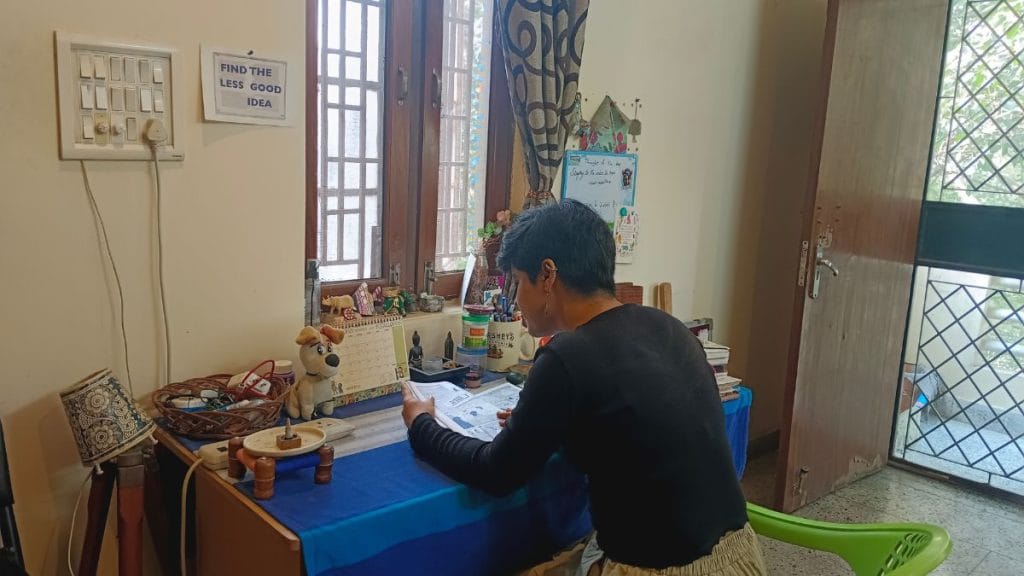
Madhuri’s Delhi asked her to ‘adjust’
Madhuri, 31, a podcast producer, discovered the same pattern when she moved to Delhi in 2020.
“RWA societies are built for families,” she said. “Whenever you start looking for a house, the first question they ask is, ‘How many people will be living here?’ This shows how far we still are from accepting the concept of living alone,” she said.
Madhuri was even asked what her parents do and if they could be called to verify her background, just because she was looking to rent a house for herself. The brokers’ instinct was always to suggest smaller houses because a woman, that too single, must “compromise”.
“As soon as the brokers found out that a single woman was looking for a house, they would show properties with some shortcomings, thinking she would compromise,” Madhuri said, adding that people often use the words ‘single’ and ‘adjust’ together.
Unable to find a suitable one-bedroom unit inside any RWA, she rented a barsati (a roof-top one room set up) in Vasant Kunj, cramped, but free of surveillance.
For four years, the terrace served as her dance studio and living room. But when she recently began looking for a new place, nothing had changed. Landlords demanded to know who would visit her, whether she drank alcohol, how late she returned from work, and whether she had a fiancé.
Eventually, she and a male friend decided to share a flat but only after telling the landlord they were engaged.
“Indian society is not ready to accept a woman living alone, let alone a man and a woman sharing a house,” Madhuri said, adding that she sometimes pretends her friend is her fiance, especially when the landlord tries to pry into her personal life.
Even security guards, she said, questioned her when she came back late at night. “They never ask a man the same questions.”
Why do you have visitors?
Like Madhuri, 23-year-old assistant editor Rishita Mandal faces similar problems. Rishita rents a two-bedroom apartment in East of Kailash for the quiet it offers. But even that comes with scrutiny.
Neighbours regularly ask where she’s going, who her visitors are, and how late she returns. One even stops her friends at the gate to ask “purpose of visit”. She avoids gatherings, keeps noise to a minimum, and follows every rule and yet the complaints continue.
But when she asks for daily fixes from her landlord, like a broken lock or piled up garbage, the only answer she gets is: “Tomorrow.”
Madhuri believes that if a man had been in her place, action would have been taken immediately. “But whenever I complain, they take me for granted and ignore my problems,” Rishita said.
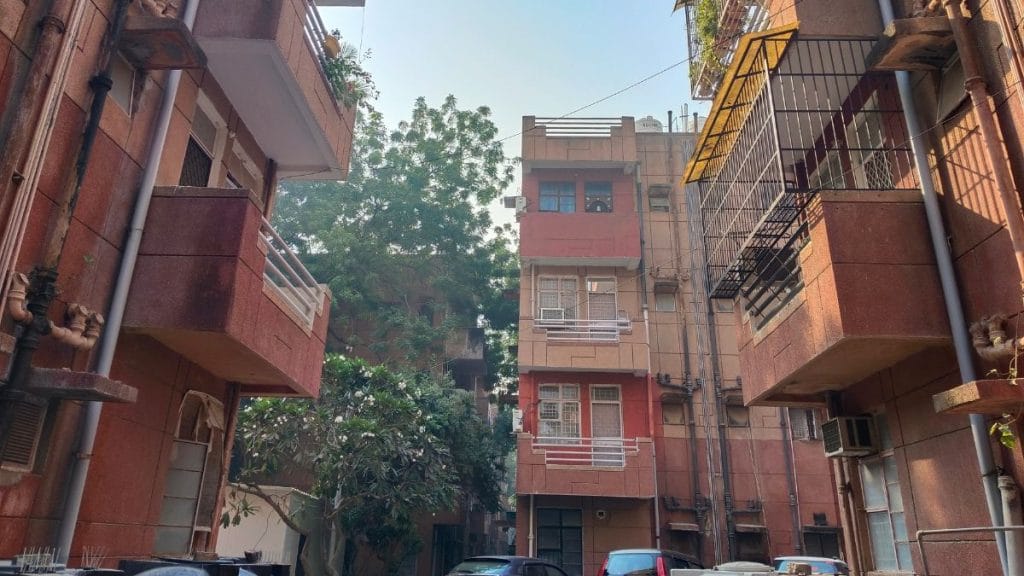
Brokers explain bias
Property dealers say homeowners “deliberately” avoid renting their houses to women tenants, assuming they are more demanding than men, whether it’s about proper infrastructure, safety, security, or the locality.
“Women want everything to be in order and often complain if something isn’t right, while men usually ignore such issues,” Sunny, a property dealer in South Delhi, said.
The bias is not limited to single women.
Sunny, 41, says many homeowners hesitate to rent to single people – men or women – because of the perception that they will create “unnecessary trouble” which the owner would have to handle.
“Most of the time, owners refuse to rent not just to women but to bachelors, because they believe no one will control them and they’ll do whatever they want,” Sunny said.
Landlords or house owners are not happy with tenants’ late working hours, the possibility of frequent parties, or friends visiting often – things they fear will disturb neighbours, who will raise it with them.
Sunny also added that women tenants usually have several “demands and criteria” while searching for a home including safety, security, budget, and the size of the space.
“It’s difficult to find a house that meets all their requirements within their budget,” he said. “Most single women look for small but spacious houses and those are hard to find in most societies.”
He added that women typically seek safer, better-lit homes with adequate space, features that many societies do not offer within reasonable budgets.
“They want small but spacious units. But societies are built for families, not individuals,” Sunny said.
Also Read: Delhi’s war on dogs has turned RWAs into a battleground. ‘They’re fighting, not debating’
RWAs reject allegations of bias
While women tenants speak out, presidents of various RWAs in posh localities denied any claims of bias against single tenants based on gender.
“Society’s rules are the same for everyone, whether it’s a family or a single person. If any owner refuses to rent out their flat, it’s entirely their personal decision,” Amina Talwar, President of a RWA in Vasant Kunj, said. She added that several single women have been living in their society for years and none have ever faced such incidents.
Homeowners aren’t spared either
The bias doesn’t end with tenants. Even homeowners living alone describe being deprioritised.
Vandana Sharma, 47, runs a tiffin service from her house in Sant Nagar. She has been requesting the RWA for two years to remove a dangerously leaning tree that blocks her balcony.
The answer is always: “It’s not that big a problem.”
“If I had a husband shouting at the RWA office, this would have been done in a week,” Vandana said.
Her society’s RWA has zero women members, and entering a room full of older men, she says, feels futile.
In Delhi, most rented homes fall into two categories: CGHS (Cooperative Group Housing Society) flats and individually owned flats, such as those in plotted colonies or DDA developments. In a CGHS society, both the owner and the tenant must adhere to the society’s rules. In contrast, individually owned flats operate more independently. Here, the landlord sets most of the rules, and the local RWA, if one exists, has limited authority.
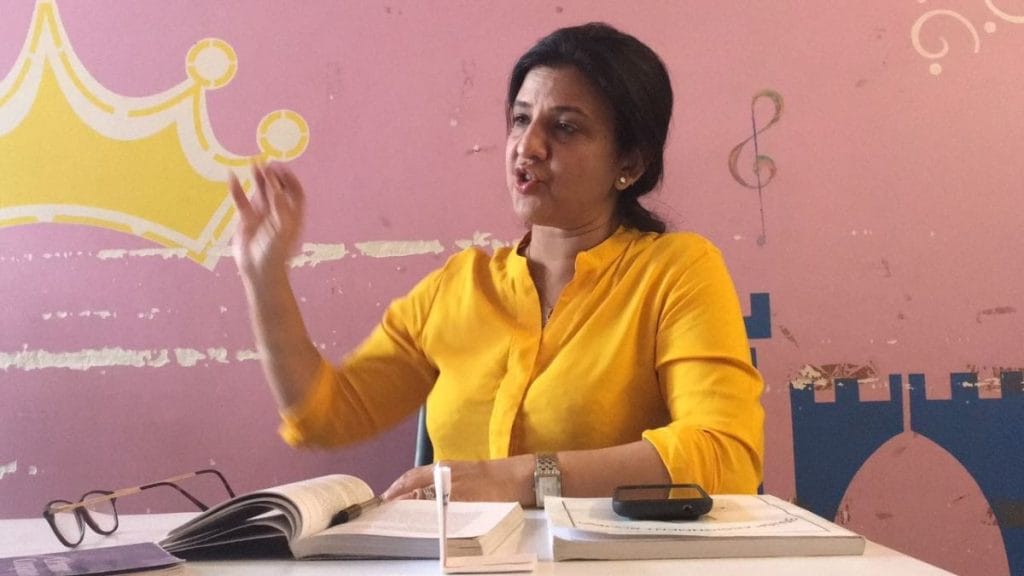
When RWAs support: The exception, not rule
Some women say that supportive RWAs exist, though rarely.
Lipika Malik, 58, who has been living independently since 2017, shares that the RWA of her south Delhi society and her neighbours have always been supportive and helpful.
“They have always been kind and ready to help whenever needed,” she says.
Lipika also adds that times are changing and there is a new generation of women who are constantly supporting and building each other up.
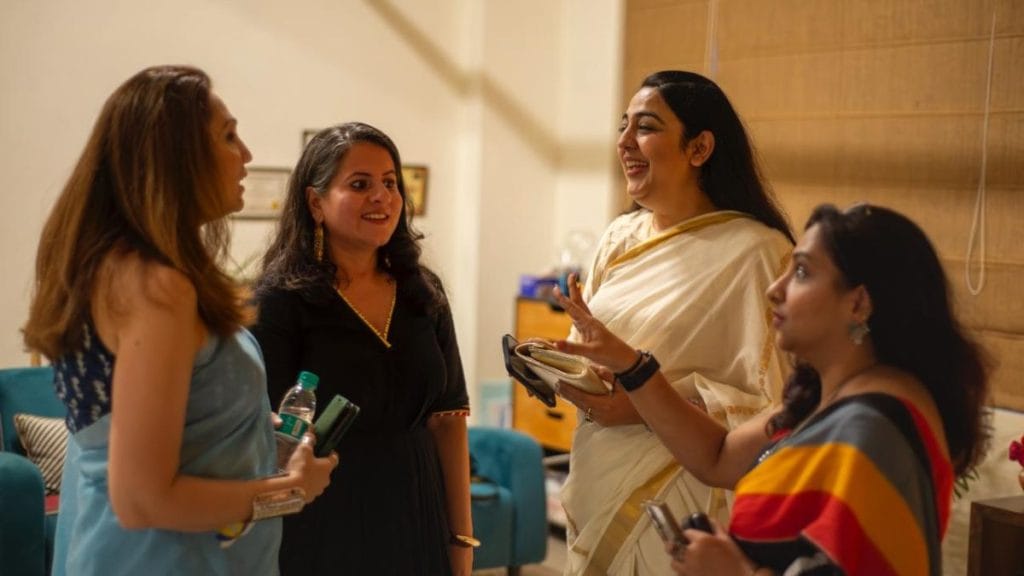
A quiet resistance
Beyond the RWAs, new support networks are emerging.
In Gurugram, Sohini Mishra runs Women in the Hood, a community for women who live alone or away from family. She dislikes the label “single women”, calling them “unattached” instead.
“Our social structure, economic realities, and cultural nuances make it very difficult for women who choose to live unattached,” Mishra, 41, said, adding that as women take on every kind of work and become increasingly independent, many are choosing to live alone.
Her collective now helps women in neighbourhoods connect, offer advice, share safety tips, and advocate for themselves.
“Women living by themselves are creating a new and better space for generations to come,” she said.
When women are visible in public spaces walking, reading or simply existing makes cities feel safer and more equitable. Safety is no longer about surveillance, it’s about solidarity.
(Edited by Stela Dey)



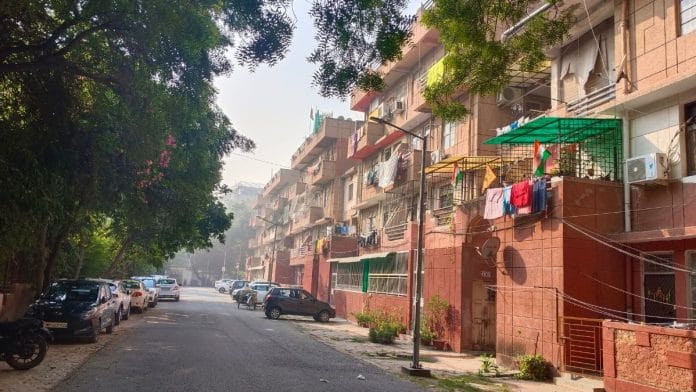



Just imagine what us bachelors go through while hunting for a home. If people have issues with single women, how much more do they despise us single men.
Welcome to a slice of our world, Ms. Khatoon. Women have always envied the freedoms/liberties ‘enjoyed’ by men. Now you are getting a taste of it too. Hope you like it.